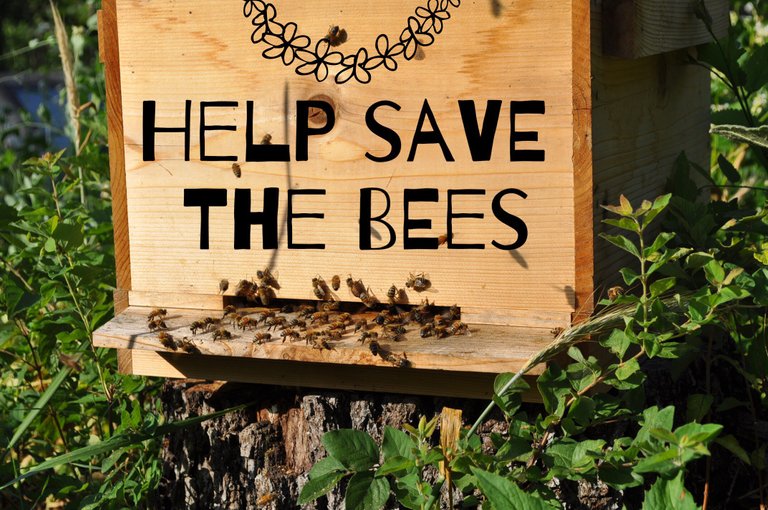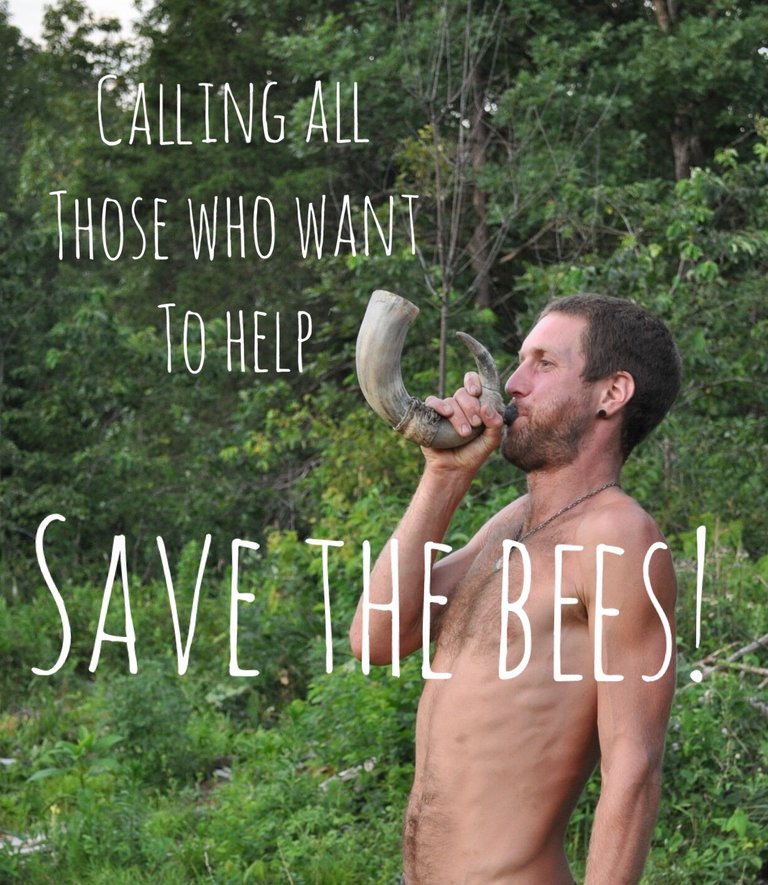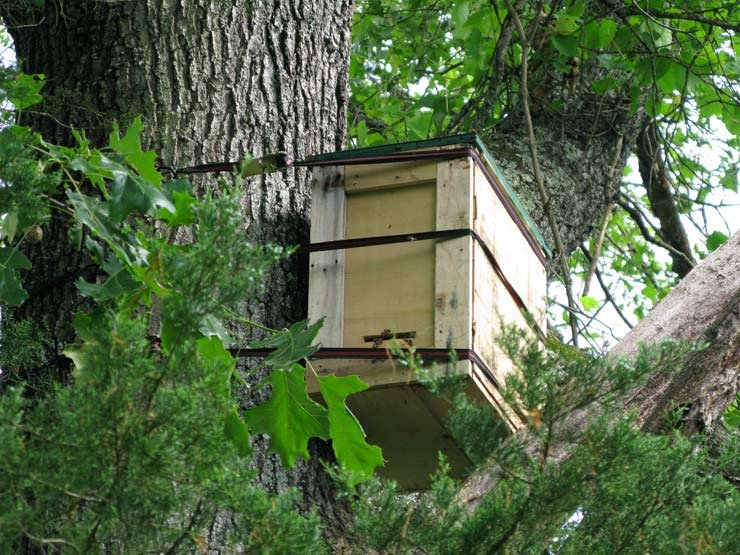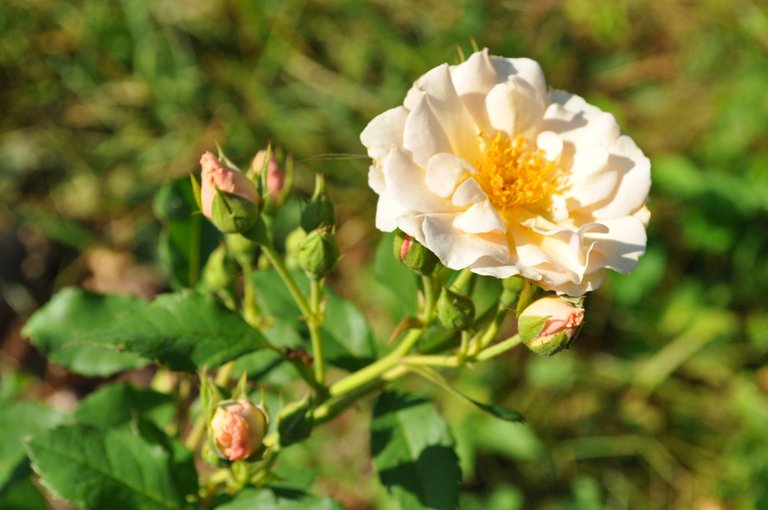
Building resilient honey bee populations
The Bee situation
We all have heard of the dire situation we and all inhabitants of the earth are facing as we see severe decline in bee populations. Colony Collapse Disorder (CDC) is a well known, but little understood phenomenon. In fact, it’s really a general way of talking about the drastic honeybee die offs that are occurring. The implications are a threat to our bio security- if we lose the bees the effects will be devastating for all life on this planet and humans will especially feel the sting, as 2/3rds of our food is bee pollinated. Across the board, particularly in North America, we are seeing massive colony losses. For example, Oklahoma lost 75% of their honeybee colonies last year.
I am not a scientist, nor am I a beekeeping expert, but I do see that something drastic must be done. The honeybee is an integral part of our lives, essential to agriculture, not to mention the greater part they play in pollinating numerous non-agricultural plants.
This is an all hands on deck situation!

Many beekeepers are working towards solutions. Certain pesticides are banned (mosly in Europe, but not North America) and there is some truly groundbreaking research studies lead by mycologist Paul Stamets surrounding bee health. The data shows huge increases in bee immunity by feeding small amounts of mycelia extracts. Up to 1000% decrease in incidences of deformed wing virus (spread by varoa mites) and an almost doubling of foraging lifespan of worker bees. But still, you might find yourself asking:
What can I do for the bees?
Besides lobbying, fundraising, researching and grant writing, there are some simple “boots on the ground” things you can do.
The approach we have chosen at our homestead, Mountain Jewel, is to bolster the local bee populations by selecting vigorous, resilient and locally adapted stock to keep in our apiary. This means not buying bees from a breeder whose bees will not be adapted to this climate (unless raised locally, which isn’t an option for us currently). The queen breeding process does not include mating with wild bees (an important factor to genetic diversity), but instead seeks to control the entire process. The commercial methods of breeding bees are for maximizing production, and do not lead to stronger bees. Furthermore, by medicating bees with toxic pesticides (to rid bees of mites and such) we are not only weakening bees, but also building pests with greater resistance.
One Solution: Catching Local Swarms
We have chosen to build swarm boxes that will entice wild/feral swarms to take up residence. This works because of the natural tendencies of bees to swarm at certain times of the year, due to overcrowding of the hive or other unfavorable conditions. When a bee colony swarms, it sends out scout bees to look for an appropriate home. This has often been a hollowed out tree where they can seek shelter from the elements and build out new comb. If the scouts deem it suitable, the swarm will take up residence. In understanding this, we can attract bees to a box we build and multiply our bee stock naturally.
How to Catch a swarm
Catching swarms with boxes is quite straightforward. The size and shape of swarm box will depend on the hive style you select. Langstroth frames are not the same size as Warre or Layens and so on. Each model has pros and cons, so read talk and experiment. For instruction and details of swarm box building, check out Dr. Leo’s website for free plans at HorizontalHive.com.

(Photo by Dr Leo)
How to
- Prep the frames with wax (strip or foundation) with propolis and lemongrass oil. Bees are attracted to theses scents and it will signal a good home to scout bees. If you’re keen on it, weigh the hive to figure future swarm weight.
- Find a solitary tree on the edge of wooded area. It should be accessible and visible to both you and the scout bees.
- Climb up (20 feet is recommended, but 12 or more will suffice) and attach the baited swarm box with ratchet straps.
- Keep an eye on the box. Once you see regular activity, you can rest assured a colony has taken up residence.
Congrats! You’ve attracted a swarm.
If you are using a 7 frame Layens box, you can use it to house the bees for the first season. Otherwise you will have to transfer the colony to your apiary.
There so much work to be done with honeybees and we hope this little bit will get some inspiration moving to take part in the important task of revitalizing natural bee keeping, where we support the bees health and do not focus solely on yields.

I really want to get into beekeeping, but if bees are dying off in mass numbers, are they hard to keep alive and care for?
Your local environment plays the biggest part in their survival. Honeybees are not native to the US and even natural conditions in some areas can not provide great levels of nutrition the bees need. Case in point is NY state. The lime belt region provides a much more nutritious environment that the rest of the state. Just like humans, a well nutrition feed bee is a healthy bee and less susceptible to viruses and diseases. Majority of CCD cases are seen with the commercial beekeepers who are putting their bees on monocrops that don't provide a well rounded diet of the different proteins. Just going 'natural' is not the stop all answer, you may still need to provide supplements. Not trying to hijack a post, but if your interested in getting into beekeeping, check out my "Beekeeping for Everyone" posts where I'm approaching beekeeping for novices.
Thanks, I'll be checking the post out!
Hi, thanks for your great inquiry! Good question. They’re dying off because of mis management and unnatural methods of feeding, medicating and housing. I would suggest researching natural beekeeping methods (like the ones mentioned above at horizontalhive.com) and talking to as many natural beekeepers as you can. Many people are keeping bees without feeding or medicating and with great success and quite easily! Good luck on your path!
Where I live Border Free Bees and the Pollinator Pasture Project are going strong! We are working to provide habitats and protection for wild bees and there are many beekeepers and organic friendly people around here as well.
At home I am working on more flowers for the wild bees and for the honey bees, we have over 200 kinds of wild bees here!
Sounds like some good initiatives. Bees for sure need all the support we can muster. And we certainly can’t forget the mason bees.
Mason bees, bumble bees, tiny parasitic bees inside tiny parasitic bees inside wasps! I love them all <3 Bombus is my favorite family of them all!
you just gave me a great idea, I put a box of those in a tree that is near my house
FANTASTIC!!
I think I'll definitely try this on at Wild Rose Acres! Thanks! P.S. May I link this in the next issue of the Weekly Homesteading Newsletter? Thanks!
Awesome! Let us know how it goes! And feel free to link! Thanks for spreading the good news! Xo
Happy Sunday! This comment is to inform you that your article has been linked and featured in the most recent issue of the Weekly Homesteading Newsletter! Please check it out if you have the time! Thank you!
Thank you! Heading over there now. Love your community weaving <3
Someday I'll have some property with bees, it's something I've always wanted to do. Now I know how to catch a swarm! Great info, awesome post.
Fantastic! Happy to hear that and good luck with manifesting your dream <3
One of the first interviews I want to conduct and post on here is with a local bee keeper who is nationally known :)
Right on! Spread the good news! Looking forward to it~~
He is actually me ex-stepdad. I grew up chasing swarms with him and spinning combs :) Unfortunately I am allergic to honey bee stings (not anaphylaxis luckily but severe localized swelling) so I can't keep, but I have someone that might be willing to tend them if I put a few hives in the orchard.
Fantastic. Sorry to hear about your swelling, but grateful you have an alternative!
I definitely want to keep bees someday. But use more of a hands-off approach; making it as close to their natural homes as possible, and not so much for honey. At least at first.
That’s awesome and definitely feasible! There are many low maintenance approaches. Our mentor, Leo, sometimes only visits his hives once a year- with great success!
One caution about collecting local swarms. If you live in an agricultural area that imports honeybees for pollination, there is a good chance swarms caught are not local acclimated stock. Farmers are paying big bucks per hive for pollination and want to see full hives of bees. Once these full hives hit the crop and start bringing in large quantities of pollen/nectar they get cramped and go into swarm mode. The beekeeper is managing 100s of hives under contract and does not have the time to waste chasing swarms. I have one customer in Georgia that collects 100s of swarms a year from the pollinators.
The other thing to be aware of is recently we are seeing more hives abscond due to heavy varroa mite infestations. So although you may thing you are getting a swarm from a strong colony you may actually be getting a sick colony that has abandoned it's previous nest to try and get away from the bad environment.
Do to these reasons I would strongly suggest evaluating each swarm and consider re-queening.
I have done quite a bit of work on swarms that can be found here -> https://beevac.com/swarm-traps/
I'll do a post in the future and share the plans for my swarm trap design that has evolved through my experience.
Thanks for these thoughts! Definitely important considerations. I look forward to your more extensive post on this.
One of my goals is to have a bee hive here on our homestead. Truthfully I am a little intimidated by doing it and sort of keep putting it off. Before we moved to our homestead I was going to get them immediately in June, then that was moved to the fall, now I am looking at the Spring to start the hive. I think more realistically I will be planting a lot of bee friendly plants this spring to attract the bee's to our property and continue to do research before taking the plunge. I am not particularly interested in Honey collection so much as I am in their pollination skills. LOL the honey is more of a added benefit for me. thanks for the great share! this is definitely an important initiative.
Looks like you’re into it for the right reasons. I’d recommend making friends with a beekeeper and simply spending time with them, there’s a lot to be said for being around them. There are also many hive models, so you may find one that works for you.
Bees are next on the list! We've been kicking around the idea for the last few years. It seems pretty win-win. And thanks for the HorizontalHive link!
Glad to hear it, the site is a great resource.
Nice post. I don't keep bees, and as a family we only use honey now for medicinal reasons. For us we wanted to try and reduce the amount of honey we use.For me I think we should let them rejuvenate and not take their honey at all. It's good to plant flowers for them and even have hives for them to use, but I think that should be the only interaction we have with them until their numbers build up again.
I agree it’s important to let bees rejuvenate, and honey has so many benefits to us humans. I will add that bees don’t work at full capacity, I’ve heard it said they work at 1/3. If managed graciously, I don’t feel there is anything wrong with harvesting the valuable honey crop. This said it is VERY important to do so only if the bees have more than enough stored.
Great article. Will you be posting more on your bee keeping adventures?
Thank you! Yes indeed we will :)